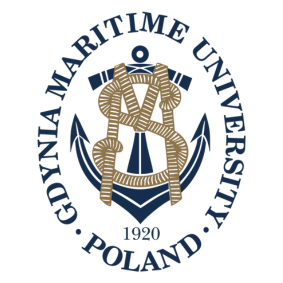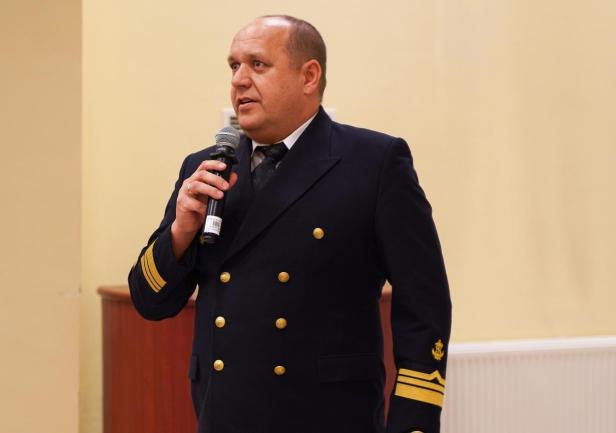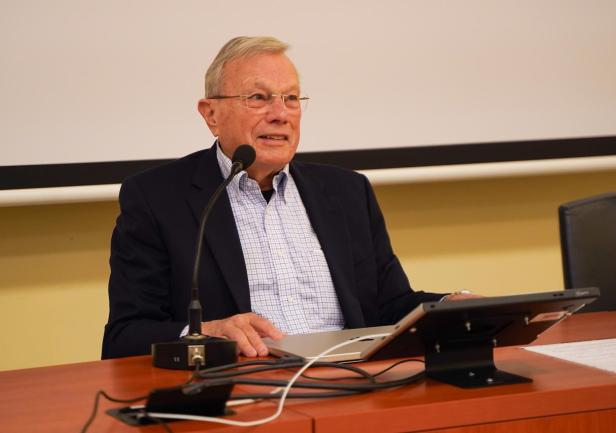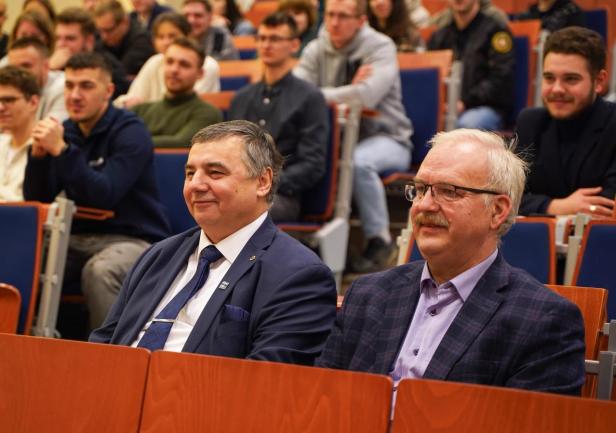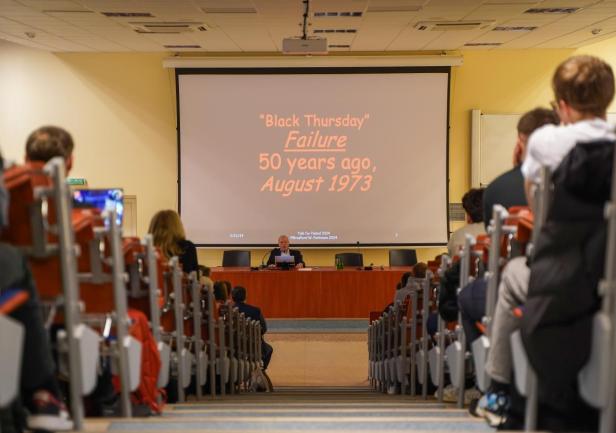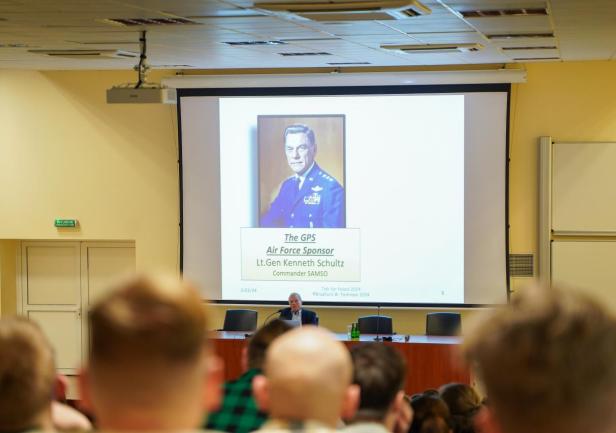Doctor Honoris Causa Bradford Parkinson Gives Talk at Faculty of Navigation
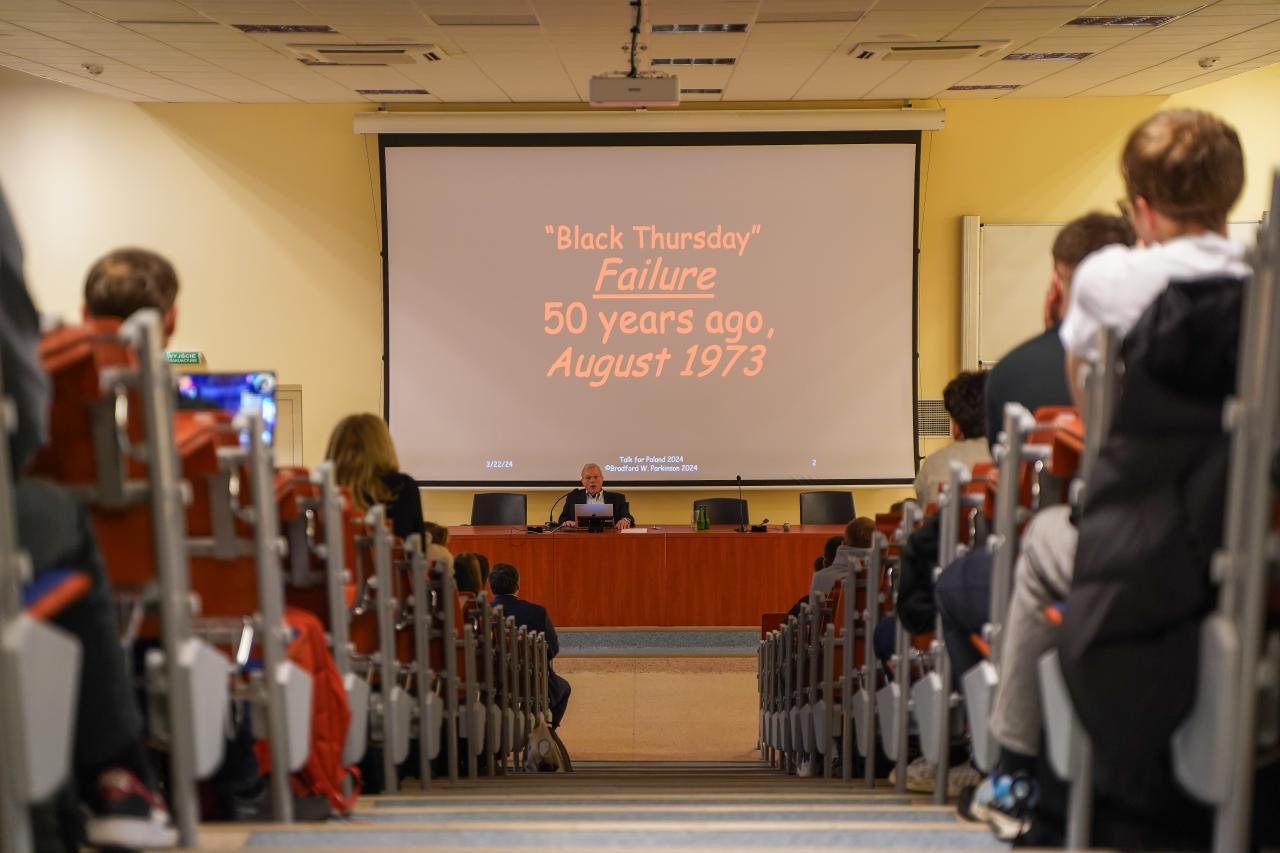
The Gdynia Maritime University Faculty of Navigation was honoured to welcome an exceptional guest today, 22 March 2024: distinguished engineer, inventor, the "Father of GPS" and Honorary Doctor of Gdynia Maritime University – Professor Bradford Parkinson.
The appearance of the prominent scientist and leader, whose work has led to unparalleled progress in navigation and many other aspects of the modern world, followed the ceremony held on Thursday 21 March at the University's main campus for the conferral of the Honorary Title of Doctor honoris causa.
Before taking to the floor to present his talk to the University's students, who had gathered to capacity in the Faculty's Maximum Auditorium, as well as Faculty, University, and Maritime Institute authorities, the esteemed Professor was warmly welcomed by HM The President of GMU, Professor Adam Weintrit, and the Dean of the Faculty of Navigation, Professor Tomasz Neumann. Also present was the promoter in the procedure for the conferral of the honorary title of Doctor honoris causa on Professor Bradford Parkinson, Director of the Maritime Institute, Professor Krzysztof Czaplewski.
The topic of Professor Parkinson's presentation concerned the history of the beginning of the Global Positioning System, which, as he put it, paraphrasing Lord Wellington's words after the battle of Waterloo, was a "very near thing."
The Professor presented some of the obstacles and challenges faced by him and his team in the early development of GPS. He made it clear that the project did not initially have the support of the U.S. Department of Defence, which, following the presentation of the initial design of the satellite system, unanimously ruled against continuing its development.
He also mentioned several key figures in the development of GPS, such as Dr Ivan Getting, President and CEO of Aerospace Corporation, who was unhappy with an earlier satellite system in use by the U.S. Navy, which was burdened with many flaws. Getting's inquisitive nature led to a Report written by Aerospace Corporation engineers Jim Woodford and Hiroshi Nakamura, who explored all possible ways of creating a better satellite navigation system.
A key turning point in the development of GPS was a chance meeting with Dr Mal Currie, the Undersecretary of Research and Engineering for the U.S. Department of Defence. Dr Currie paid Bradford Parkinson a visit in which the senior official and the young Air Force Colonel discussed the project for a new satellite navigation system at length. The afternoon proved ground-breaking. Since both of them had technical backgrounds, Currie took an immediate interest in the development of GPS and as a result, he called it his "Favourite Department of Defense programme".
After Parkinson failed to gain approval for the programme from the decision-makers at the Pentagon, Currie called Parkinson into his office and told him to rethink his design.
This led to what was to become known as the Lonely Hall Meeting of the Labour Weekend of 1973, where Colonel Parkinson and his team of engineers drafted a 7-page document outlining a new idea for the system.
During his presentation at the Faculty of Navigation, Professor Parkinson shared with GMU students details of some of the technical obstacles faced by the team in the development of the first GPS. These included shielding satellite equipment from the extreme levels of radiation it is exposed to in orbit.
He also discussed how the project benefitted from the integrated-circuit revolution that allowed for a dramatic drop in the costs of production of GPS receivers–the same technology that is embedded in our phones, watches, GPS equipment, etc today.
In his presentation, Professor Parkinson showed his own early drawings detailing potential applications for the Global Positioning System, some of which we now take for granted. These include the use of a satellite navigation system in automobiles, which would use integrated maps to direct drivers to the desired destination or give travel information.
Some applications of GPS were, however, not foreseen by Parkinson and his team. Back in 1974, the team believed in terrestrial navigation using GPS. But what came as an absolute surprise in 1992 was its ability to assist blind landings. GPS-assisted landings were tested more than 100 times by a testing team, with the solution allowing for a safe landing on all occasions.
In 1996, a team of Professor's students used GPS for automated farming. Despite claims that this is not something that farmers would want, today's robotic farming industry is worth over 1 billion dollars per annum.
Other uses of GPS include surveying - allowing researchers to accurately track the changes in terrain and crustal motions, both horizontal and vertical, enabling a better understanding of the cycle of volcanic eruptions and earthquakes and the probability of such occurrences.
One of the most recent developments in GPS is space navigation.
Discussing the future of GPS, Professor Parkinson expressed the belief that one day GPS will be used for self-driving long-haul vehicles (in development since 2015) and autonomous ocean vessels. He also paid tribute to the young team who maintain the Global Positioning System daily in the U.S.
In conclusion to his presentation, a story of resilience, faith, friendship and support, Professor Parkinson commented that nowadays GPS is taken for granted - the common success of many engineers who worked for the benefit of humanity.
The Professor's highly engaging talk was followed by questions from the audience. Questions focused on changes to GPS since the 1970s, the navigation of vessels using GPS, and the reason behind the (free) open access of GPS to the public.
The meeting was brought to a close by HM The President of GMU, who thanked the University's esteemed Honorary Doctor for his talk.
